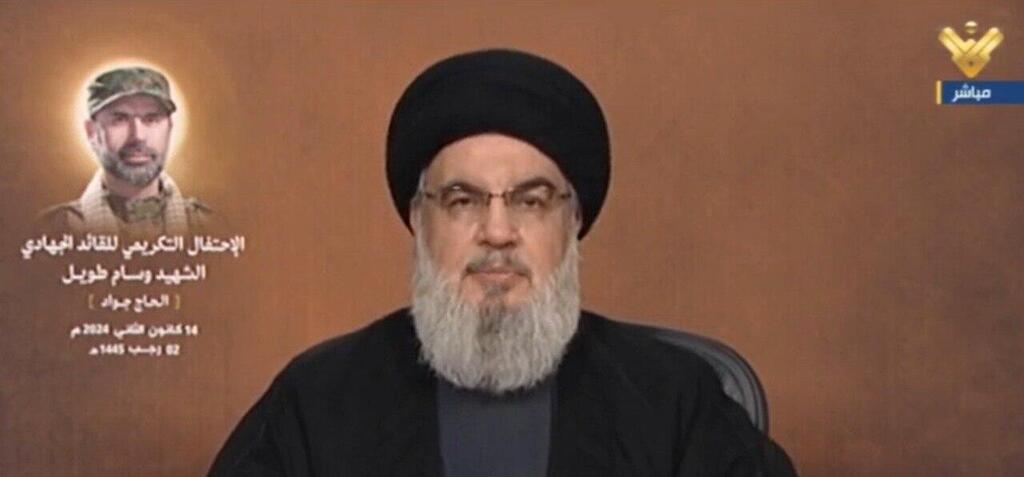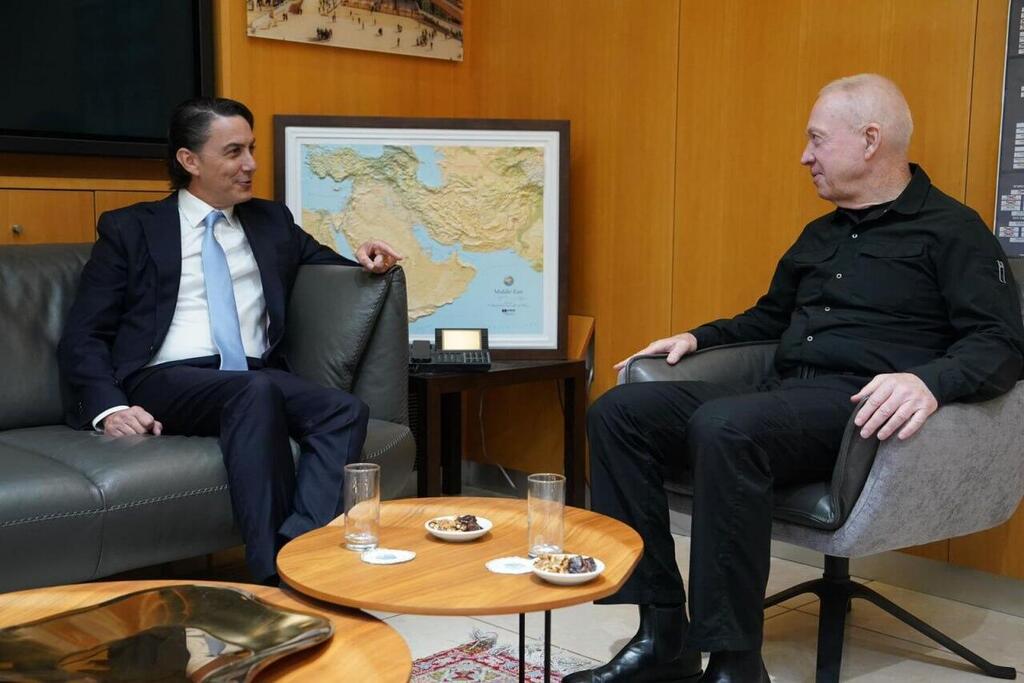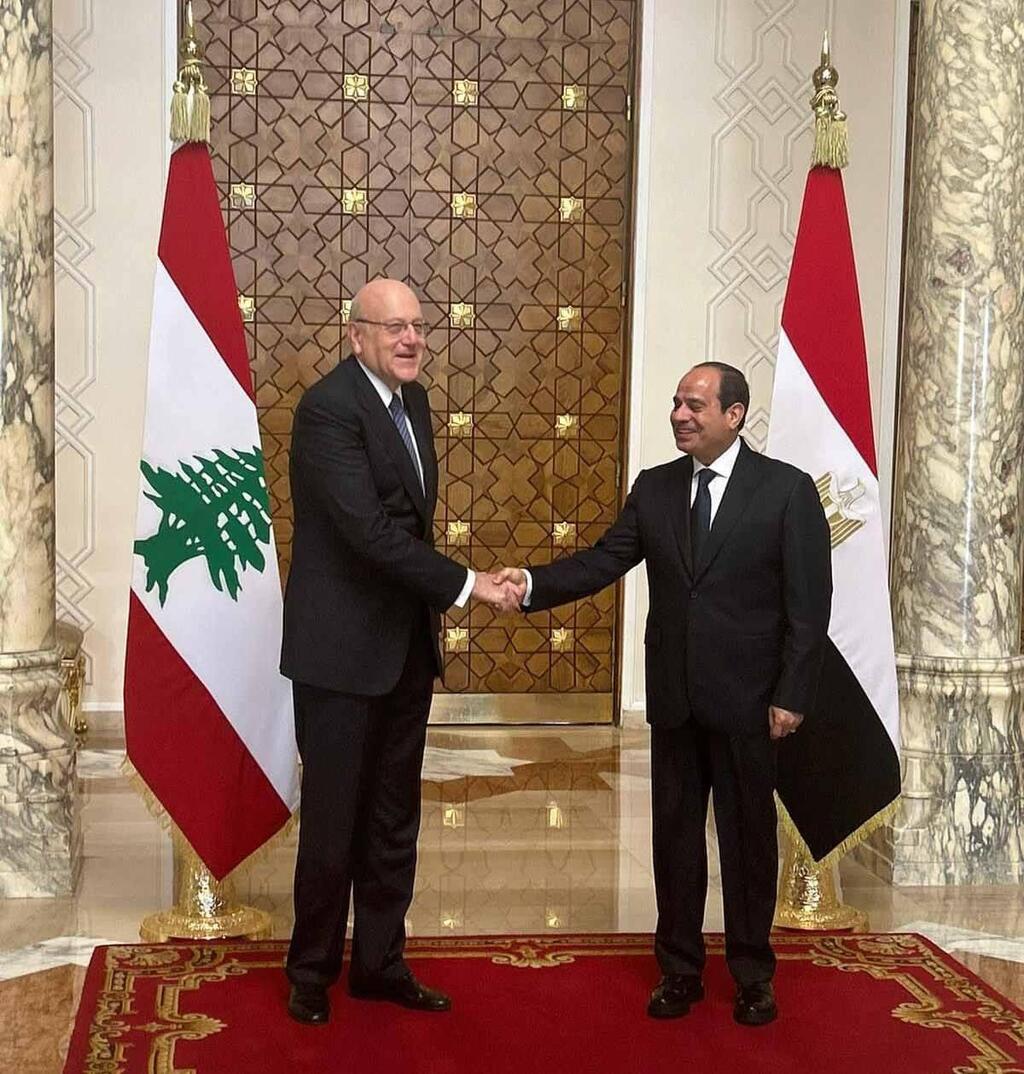In his last visit to Lebanon, Amos Hochstein, U.S President Joe Biden's special envoy to the region, made it clear that the situation in Lebanon is challenging, raising the necessity to discuss a solution that will allow the residents of the border areas on both sides - in Israel and Lebanon, to live safely and "focus on a better future." Since October 7, the U.S has been trying to keep Hezbollah out of the fight and believes that the conflict is between two sides: Hamas and Israel, and that it must remain so.
Read more:
Not only Hochstein, but also representatives from Western and Arab countries have been working non-stop in Lebanon in recent months to try and prevent the conflict in Gaza from spilling over . This is happening while Israel reiterates time and time again that it would prefer to end the conflict in the north with an agreement.
However, all the diplomatic activity is taking place during a time when Lebanon has been without a president for over a year. Prime Minister Najib Mikati leads an interim government and there are problems with the military leadership. These problems raise the question, is there anyone Israel can engage in dialogue on the northern border threat?
According to Arab reports, the Americans understand the crisis in Lebanon and the challenge of reaching a diplomatic solution with Israel, which may prevent a serious military confrontation. Hochstein said during his visit about two weeks ago that it is necessary to achieve stability in Lebanon, elect a president, form a new and permanent government with full authority and resolve the internal issues. Meanwhile, there is no real solution for the thousands of Israelis who were forced to evacuate their homes in the north.
Lebanon, apart from the political, military and security crisis at the moment, is facing a severe economic crisis that has been around for several years as well as another population crisis following the displacement of people from Syria. Even before October 7, a committee consisting of representatives of five countries: the U.S, France, Qatar, Saudi Arabia and Egypt have tried to resolve these issues.
This committee has continued to act in recent months, amid the war, and hopefully diplomats will meet with senior Lebanese officials to finally reach an agreement on the election of a president, although the Hezbollah terrorist organization may create difficulties.
3 View gallery


Hezbollah Secretary-General Hassan Nasrallah prolongs political turmoil by insisting on candidate
According to an article published by the Hezbollah affiliated Al-Akhbar network on Wednesday, the involvement of Western countries in trying to solve the crises in Lebanon continues and each country has taken one aspect of the crisis upon itself. Meanwhile, the committee of the five countries is responsible for drafting an agreement that includes the electing a president and the forming a government. It was reported that Amos Hochstein would be responsible for discussing all the details of Resolution 1701, the mechanisms for its implementation and solving the points of dispute.
The Egyptian ambassador to Lebanon, who met with the speaker of the Lebanese parliament , said: "Every country in the world must have a president, and in these critical circumstances, it is even more necessary. What is happening in the region and the challenges facing Lebanon demand that the election of the president be expedited."
Qatari newspaper Al-Arabi Al-Jadid quoted a diplomatic official at the French embassy in Beirut who claimed that "the important thing today is preventing the expansion of the war in Lebanon. The stability we are waiting for requires political stability, and therefore it has become necessary and urgent to elect a president for the country and establish a new government with full powers so that the parliament also will be able to fulfill his role." However, sources told the Qatari newspaper that the presidential "vacuum" is expected to remain due to Hezbollah's inability to compromise as it tries to impose its presidential candidate.




